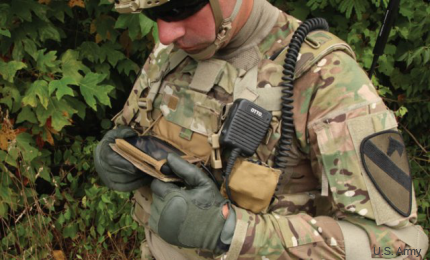Army’s move to Samsung reflects a flexible mobile strategy
The service is adding 7,000 Galaxy Note II smartphones to the Nett Warrior system, but they won’t work like typical smartphones.
When the Defense Department introduced its Commercial Mobile Implementation Plan a year ago, it said the plan would accommodate Apple, Android and BlackBerry devices for a variety of uses. Several recent purchases seem to bear that out.
The Army recently agreed to buy 7,000 Samsung Galaxy Note II smartphones to add to its Nett Warrior system, according to a report in the Wall Street Journal. Samsung also is close to a deal to supply several thousands of its devices to the National Security Agency, a source told the Journal.
The Air Force, meanwhile, recently said it was going to replace 5,000 BlackBerry devices with Apple iOS devices as part of its effort to modernize use of mobile technology. The moves to Samsung and Apple devices may come at the expense of BlackBerry, but there are still plenty of those around — the Defense Information Systems Agency said recently the implementation plan will support 80,000 BlackBerrys already in service.
And although many smartphones and tablets in the military will function in the way people are familiar with, not all of them will. The Army soldiers using those Galaxy Notes, for example, won’t be playing Candy Crush Saga. They’ll be running Nett Warrior and nothing else; most of the communications functions on the chest-mounted device won’t work.

A chest-mounted Galaxy Note II gives Nett Warrior users situational awareness.
When the Army deployed its first Note II smartphones in the summer of 2013, officials said the devices were first wiped clean and installed with Nett Warrior software, which includes an NSA-approved version of the Android OS and a software package developed in-house by the Army.
The devices are used to display the location of other soldiers and allows text messaging with others on the system, but cellular antennas, Wi-Fi capability and Bluetooth are disabled, the Army said. The devices communicate via a USB connection to a hip-mounted Rifleman Radio.
But even smartphones that aren’t fully functional as smartphones are cost-effective, Jason Regnier, deputy project manager at Program Executive Office - Soldier, at Fort Belvoir, Va., said at the time. Paying the commercial price of about $700 per phone and adapting it for Nett Warrior use is still cheaper than contracting for a device developed specifically for the Army.
For the Army, the task is to be fluid enough with its systems to handle the constant upgrades in smartphones and tablets. "We are beholden to the commercial industry," Regnier said. "We have to keep up with them. So when the Note IIs are gone, they're gone. So then we'll have to be ready to buy Note IIIs or whatever it's going to be."




